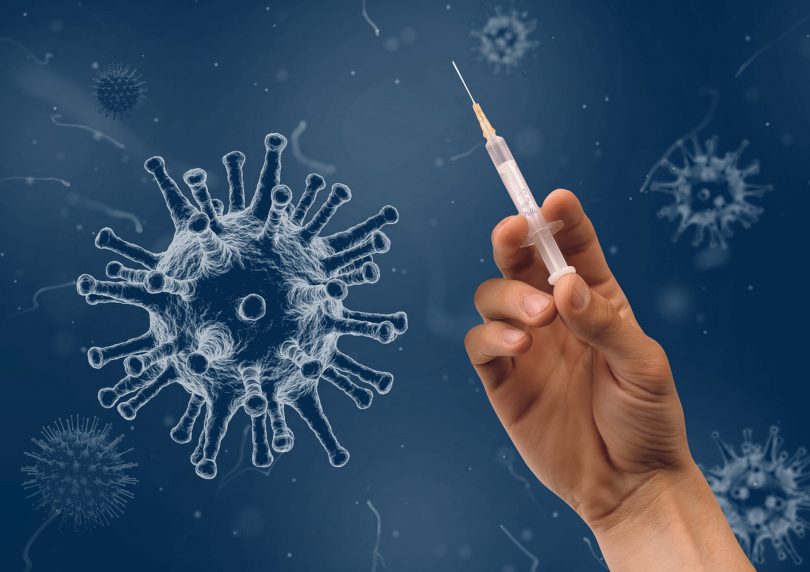People living with HIV are less likely to mount an adequate immune response, which may put them at higher risk for both serious COVID-19 illness and reduced response to COVID-19 vaccination.
$2.6-million study most extensive on vaccines and those with HIV
The Government of Canada, through its COVID-19 Immunity Task Force (CITF) and Vaccine Surveillance Reference Group (VSRG), is investing approximately $1.75 million in a study that will assess the immune responses, safety, and effectiveness of COVID-19 vaccination for this vulnerable population that has been understudied with respect to COVID-19. The study is further supported by the Canadian Institutes of Health Research (CIHR), the CIHR Canadian HIV Trials Network (CTN) and Stop the Spread Ottawa, bringing the total funding to more than $2.6 million.
Conducted by the CTN (housed at St. Paul’s Hospital), and a large team of co-investigators and collaborators from across Canada, the study, called COVAXHIV, is the most extensive study in Canada to date to evaluate the immunogenicity, safety and effectiveness of COVID-19 vaccination in a diverse population of people living with HIV.
“Limited data” on those living with HIV: Dr. Aslam Anis, National Director of CTN
“There have been very limited data from clinical trials for this at-risk community,” says Dr. Aslam Anis, Principal Investigator, National Director of the CTN and Director of the University of British Columbia’s School of Population and Public Health. “The results of this study will provide critical and timely evidence to inform immunization guidelines and public health strategies for all of the approximately 67,000 Canadians living with HIV.”

A small number of people living with HIV who are in stable health and without other medical conditions have been included in previous clinical trials for COVID-19 vaccines, but the information is not generalizable to specific key vulnerable populations that have not been studied yet.
The COVAXHIV study focuses on older patients, those who have suppressed levels of white blood cells that fight infection and people with multiple medical conditions.
St. Paul’s Hospital is a recruitment site
Dr. Costiniuk and Co-Investigator Dr. Curtis Cooper, Associate Professor at the University of Ottawa’s Division of Infectious Diseases and Scientist with The Ottawa Hospital, will recruit 400 people living with HIV from clinics in Montreal, Ottawa, Toronto, and Vancouver (St. Paul’s Hospital is a site) to determine COVID-19 immune responses. The first part of the study will evaluate how well antibodies react to fight off SARS-CoV-2, the virus that causes COVID-19, up to a year after vaccination. That data will be compared with the immune reactions from a control group of 100 people who do not have HIV.
The second part of the study will look at vaccine effectiveness in people living with HIV compared to people who do not have HIV through a population-based analysis of provincial public health records in Ontario and British Columbia. This part will be led by CTN Investigators Dr. Ann Burchell, Associate Professor at the University of Toronto and Research Director at St. Michael’s Hospital’s Department of Family and Community Medicine, Unity Health Toronto, and Dr. Hasina Samji, Assistant Professor at Simon Fraser University and Senior Scientist at the BC Centre for Disease Control and is supported in part by the Ontario HIV Treatment Network.
More than 35000 people with HIV to be followed
“We will follow more than 35,000 people living with HIV in both provinces to note COVID-19 vaccine uptake and rates of SARS-CoV-2 infection and hospitalization, which will allow us to study vaccine effectiveness in this population,” explains Dr. Burchell. “We will also be looking at social determinants of health such as sex, age, geography and socioeconomic status to see what effects they have, if any, on the effectiveness of COVID-19 vaccines.”
COVID’s negative impact greater on vulnerable people: Dr. Tam
“COVID-19 has had significant health and social impacts on all people in Canada, but the negative impacts have been greater for vulnerable populations, including those living with and affected by HIV,” says Canada’s Chief Public Health Officer, Dr. Theresa Tam. “This study will help inform Canada’s COVID-19 vaccine rollout, supporting the development of more effective immunization and public health strategies for vulnerable and diverse Canadians living with HIV.”
Participants who have already received their first vaccine dose or have already had COVID-19 are eligible for the study. To participate or for more information about the immunogenicity study, please visit: https://www.hivnet.ubc.ca/study/ctn-328-covid-19-vaccine-in-hiv/.
About the CIHR Canadian HIV Trials Network (CTN)
The CTN is a Canada-wide partnership of researchers, people living with HIV and their caregivers, governments, health advocates, and the pharmaceutical and biotechnology industry. It has pioneered three decades of practice-changing clinical studies (including vaccine trials) in preventing, treating and managing HIV, hepatitis C (HCV), and other sexually transmitted and blood-borne infections (STBBIs). The CTN National Centre is housed within the Centre for Health Evaluation and Outcome Sciences (CHEOS), which shares a joint affiliation with the Providence Health Care Research Institute and the University of British Columbia Faculty of Medicine.
This story originally appeared in a news release issued today.





